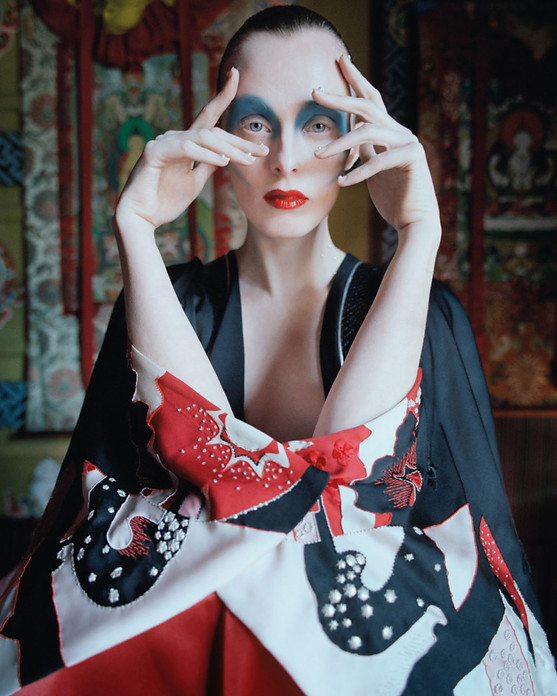
Consuming Culture
Not that long ago I attended an event where a couple—both foreigners—were decked out in the Vietnamese national dress: she, an ao dai and he, an ao gam, both in headgear. While the evening had great music and dancing, it was neither a wedding nor a state function. Why were they dressed up in another culture’s national costume? “Because it’s fun!” was the breathless reply.
I was reminded of this night a short time later when I saw the photos from the China-themed Met Ball in New York, an event where precious few Chinese designers were either on the invite list or represented on the red carpet. However, the attendees outdid themselves with some woefully bad ‘exotic’ interpretations of things ‘Chinese’: flaming headdresses, opium poppies, embroidery, brocade and cheongsam dresses worn as gowns.
Sartorial adventures aside, this is cultural reductionism. We reduce a country, society or race to easily digestible stereotypes that have nothing to do with the reality an individual from that same country, society or race might experience and everything to do with perpetuating our egocentrism.
We do this ‘othering’ with food as well.
Appropriating Culture
Why is her pho so exotic to you? It’s soup. Families in Vietnam have been eating it (or versions of it) for hundreds of years. Fetishizing food and insisting on only eating ‘authentic’ (whatever that means) food only serves to aggrandize the foodie making the proclamations. We’ve all suffered through a meal with someone braying on about a dish’s ‘honesty’ or ‘lack of pretense’ (read: romanticizing the ‘exotic’) or how the people who prepared ‘such complex flavours’ (read: wow, the natives are actually sophisticated) in such a ‘simple’ kitchen (read: primitive, unhygienic, but extra bragging rights for you!).
Food can be a conduit to experiencing aspects of a culture, but to eat goi cuon and then burpingly pronounce one’s understanding—knowing—the culture is nonsense at best and cultural appropriation at worse. Your comprehension isn’t deepened because you’re obsessed with being the only person who ‘knows’ about some street stall you ‘dared’ to eat at or because you regularly ‘check in’ with your ‘ethnic’ friends about ‘what’s real’ to eat.
Same Same but Different Perspective
Something else recently came to my attention about the different ways we appropriate. If someone roots around in a dumpster—and is good looking—and speaks English with a ‘cute’ French accent, then their lifestyle choice is applauded as ‘freegan’ or ‘freecycling’, but if a homeless person with mental health and addiction issues is caught doing same, the act is criminalized. Oh, and in the first example, the pretty thing’s homelessness is—couch surfing!
These cultures, people or food become exotic, idealized and interpreted according to western paternalism and nostalgia for a mythical past. But what you’re looking for has to include all the long years of migration, colonization and globalization and it won’t be found on a single plate. Your exploits-in-a-bowl is someone else’s sustenance.
Photo: Model Karen Elson wears something 'Bhutanese' for British Vogue / Tim Walker
This article originally appeared in Word Vietnam magazine and has been adapted. To view the magazine’s online version click here.